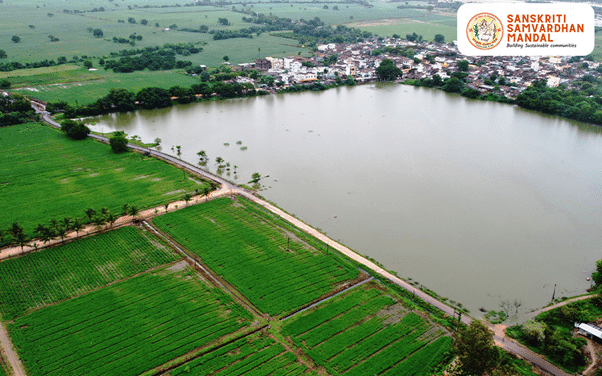Agro-Tourism: Fostering Rural Economy and Awareness
Agro-tourism has arisen as an integral asset for advancing rural economies and bringing issues to light about farming and country life. In the Indian setting, where farming is an essential piece of the economy, agro-tourism presents a chance to connect the metropolitan rural separation while giving a manageable type of revenue for rural networks. This article investigates the idea of agro-tourism, its effect on the rural economy, and how it adds to elevated awareness about agribusiness in India.
Figuring out Agro-Tourism
Agro-tourism alludes to the act of drawing in guests to country regions to encounter and take part in agrarian exercises. In contrast to customary tourism, agro-tourism centres around furnishing sightseers with a vivid involvement with the agrarian way of life. This can incorporate ranch stays, directed voyages through ranches, support in cultivating exercises, and instructive projects about agribusiness and country life.
Rural Economy and Agro-Tourism
Monetary Broadening in Rural Areas
One of the huge advantages of agro-tourism is the broadening of the rural economy. Numerous country regions in India vigorously rely upon horticulture, and vacillations in crop yields or market costs can significantly affect the livelihoods of the nearby populace. It gives an elective type of revenue for ranchers and rural networks, lessening their weakness to the vulnerabilities of horticulture.

Work Creation and Pay Generation
By opening up their ranches to travellers, ranchers can create extra pay through different means, for example, convenience charges, directed visits, and the offer of homestead produce and high-quality items. This advantages the ranch proprietor as well as sets out work open doors for local people in accommodation, visit directing, and other related administrations. Agro-tourism can possibly change farming from a resource occupation to an all the more monetarily maintainable endeavour.
Safeguarding of Conventional Cultivating Practices
As agro-tourism acquires notoriety, there is a restored interest in saving conventional cultivating rehearses. Guests are much of the time interested by the genuineness of country life, prompting the protection of agrarian methods that might be imperilled by modernization. This protection of legacy rehearses not just enhances tourism experience yet in addition adds to the reasonable utilization of regular assets.
Advancing Rural Awareness
Agro-educational Opportunities
Agro-tourism fills in as an instructive stage where guests, frequently from metropolitan regions, gain bits of knowledge into the complexities of cultivating. Intelligent meetings, studios, and cultivate visits give a firsthand comprehension of the difficulties and prizes of horticulture. This instructive viewpoint not just encourages an appreciation for the difficult work of ranchers yet additionally brings issues to light about the significance of supportable and mindful cultivating rehearses.
Interfacing Urban and Rural Communities
In a quickly urbanizing world, agro-tourism turns into an extension among metropolitan and rural networks. Sightseers have an opportunity to step into the shoes of ranchers, separating generalizations and cultivating a feeling of sympathy. Moreover, ranchers benefit from interfacing with metropolitan guests, acquiring openness to assorted viewpoints and thoughts. This association is fundamental for building common comprehension and backing among metropolitan and rural populaces.
Ecological Awareness
Agro-tourism gives a stage to advance ecological awareness. Guests can find out about the effect of horticulture on the climate and the endeavours ranchers make to take on supportable practices. This information energizes dependable tourism and persuades people to go with naturally cognizant decisions in their daily routines.
Challenges and Opportunities
Blending Tourism with Agriculture
While agro-tourism brings various advantages, there is a need to figure out some kind of harmony between tourism exercises and horticultural efficiency. Packing and unreasonable tourism related exercises can adversely affect the ranch environment. Accordingly, pivotal to carry out supportable tourism rehearses don’t think twice about essential capability of the homestead – farming.

Framework Development
The progress of agro-tourism depends on sufficient framework, including convenience offices, transportation, and correspondence organizations. Country regions frequently miss the mark on conveniences, representing a test to the development of agro-tourism. Government and confidential area drives are fundamental to foster the essential foundation and establish an empowering climate for it to flourish.
Local area Support and Empowerment
For agro-tourism to be really advantageous, the nearby local area should be effectively engaged with its turn of events and activity. Local area cooperation guarantees that the advantages of tourism are disseminated even-handedly among the inhabitants. Engaging neighborhood networks to take responsibility for tourism drives upgrades their feeling of satisfaction and obligation, adding to the maintainability of such endeavors.
Final Note
Agro-tourism in the Indian setting holds colossal potential for cultivating rural financial turn of events and bringing issues to light about agribusiness. By giving a stage to vivid encounters, instructive open doors, and social trade, it adds to the all encompassing improvement of country regions.
As India proceeds with its excursion of monetary development, agro-tourism remains as a promising road for making practical vocations and overcoming any issues among metropolitan and country networks. In any case, cautious preparation, local area contribution, and manageable practices are fundamental to guarantee that the advantages of agro-tourism are acknowledged without compromising the uprightness of farming and country life.